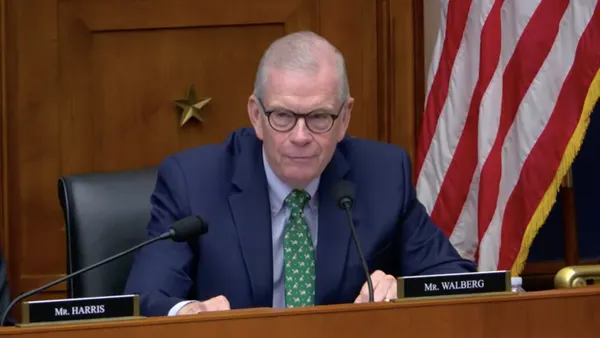Dive Brief:
- The Biden administration is urging states who’ve dropped the largest numbers of children from their Medicaid and Children Health Insurance Program rolls to take up more federal flexibilities to prevent them from losing healthcare coverage.
- Nine states — Arkansas, Florida, Georgia, Idaho, Montana, New Hampshire, Ohio, South Dakota and Texas — account for about 60% of the decline in children's Medicaid and CHIP enrollment from March through September, according to data released by the CMS on Monday.
- HHS Secretary Xavier Becerra called on the states to adopt federal flexibilities and strategies to ease renewal, remove CHIP enrollment fees and premiums, reduce call center wait times, partner with local organizations and expand Medicaid.
Dive Insight:
State Medicaid programs began reassessing eligibility for the safety-net insurance program this spring after a long period of continuous enrollment during the COVID-19 pandemic. Continuous enrollment provisions caused rolls to swell to nearly 94 million people before unwinding began in March this year.
Enrollment is still elevated compared with the pre-pandemic period: More than 88 million people were insured under Medicaid and CHIP in September, compared with about 71 million in February 2020.
But federal regulators have grown increasingly concerned about procedural disenrollments, where beneficiaries are removed due to administrative reasons, but still could be eligible for coverage. They’ve also cracked down on states for coverage losses among children, who have a lower bar to stay in the programs for low-income people.
Earlier this month, the CMS published an interim final rule that could impose fines or cut funding to states if they fail to follow federal requirements during the redeterminations process.
Regulators also paused procedural disenrollments in 30 states this fall due to a systems issue with automatic renewals. States were conducting checks at a family level and removing beneficiaries, like kids, who could still be eligible.
“CMS is doing everything in our power to protect access to health coverage during the Medicaid and CHIP renewal process, especially for children,” CMS Administrator Chiquita Brooks-LaSure said in a statement. “Many states have worked with us to adopt the strategies we’ve put on the table – and we strongly urge all states to do their part to make sure eligible children keep the coverage they need to grow and thrive.”
Overall, child enrollment in Medicaid and CHIP has decreased by 2.2 million from March to September, according to the latest data from the CMS.
But there’s significant variation by state: Five states make up more than half of the total decrease in child enrollment. South Dakota and Idaho both saw a 27% decrease in child enrollment during that period.
Regulators noted failure to expand Medicaid was one common thread among states with high numbers of child disenrollments. The 10 holdout states — Alabama, Florida, Georgia, Kansas, Mississippi, South Carolina, Tennessee, Texas, Wisconsin and Wyoming — removed more children than all the expansion states combined, according to the CMS.
Young people who turned 19 during the continuous enrollment period were also more likely to be disenrolled in non-expansion states.
States that more frequently used auto-renewals, where programs determine eligibility through available data, disenrolled fewer children too, according to the CMS.













